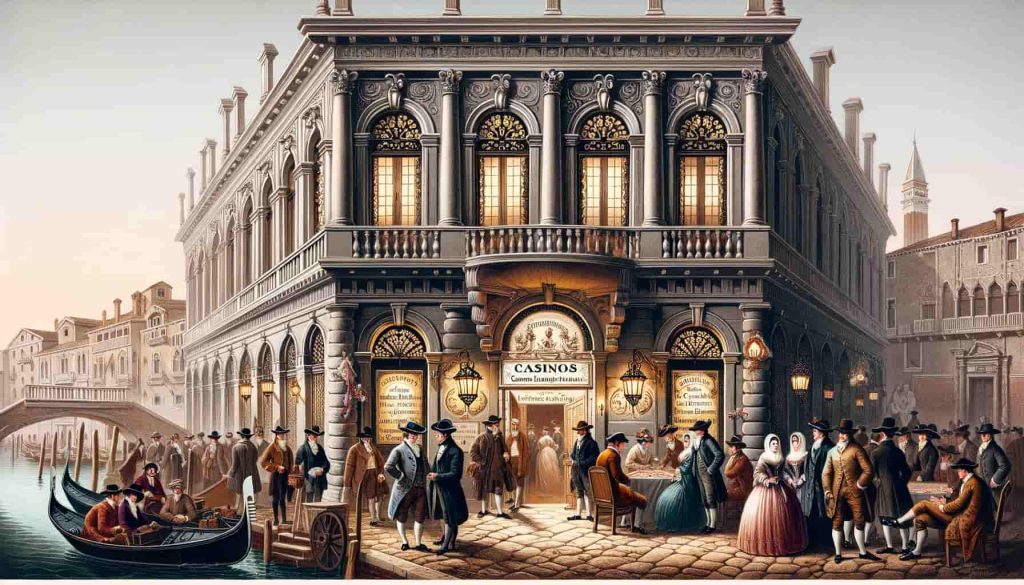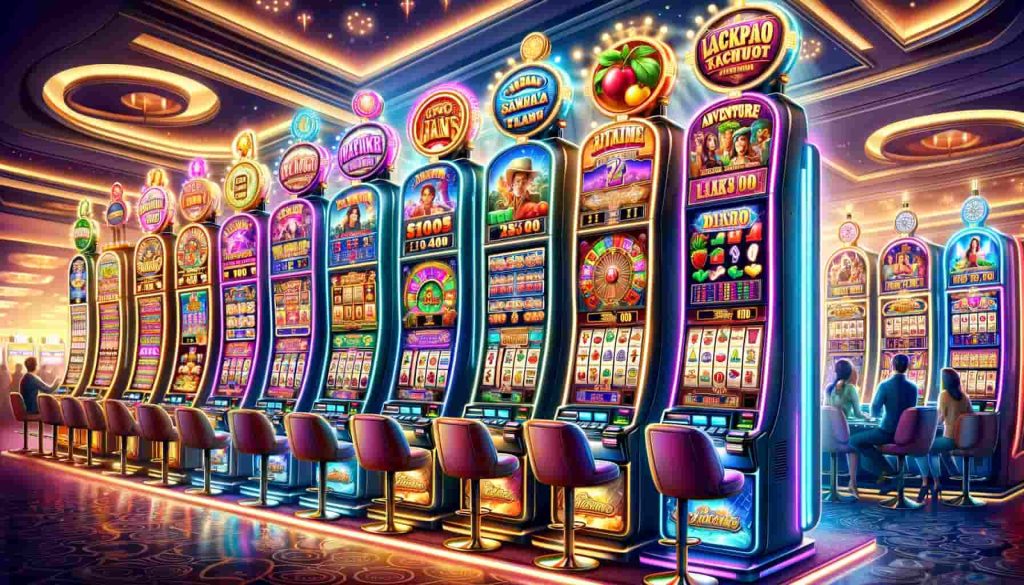- Crypto Casinos
- Bitcoin Games
- Reviews
- Learn
- Essentials
- Are Bitcoin Casinos Legal?
- Crypto Wallets for Gambling
- VPN for Bitcoin Casinos
- What is RTP?
- Gambler’s Fallacy
- Deposit with Credit Card On Bitcoin Casino
- Bankroll Management
- How To Play Bingo
- What Casino Game Has the Best Odds
- Best Casino Game To Win Money
- How VIP Programs Work
- RNG in Casinos
- Slot Machine Odds
- How Free Spins Work
- Poker Cheat Sheet
- Guides
- How to Play Texas Holdem Poker
- How to Play Three Card Poker
- How to Play Pai Gow Poker
- How To Play Omaha Poker
- How to Play Caribbean Stud Poker
- How to Play Seven Card Stud
- How to Play Mississippi Stud Poker
- Poker Odds Guide
- Card Counting in Blackjack
- What is a Blackjack Split
- What is a Push in Blackjack
- Roulette Wheel Explained
- How to Play Craps
- Craps Odds Explained
- Craps Come Bet
- How to Play Baccarat
- Moneyline Betting Explained
- Arbitrage Betting Explained
- How Sportsbetting Betting Odds Work
- Video Poker Odds
- Limit vs No Limit Poker
When Were Casinos Invented: A Brief History of Gambling Establishments
Casinos have become a popular form of entertainment for many people around the world. The bright lights, the sound of slot machines, and the thrill of winning big have become synonymous with the casino experience. But have you ever wondered when and where the first casino was invented?
The origins of casinos can be traced back to ancient civilizations, where gambling was a common pastime. The Chinese are credited with creating the first game of chance, which involved rolling dice.
The Romans were also known for their love of gambling, and they would often bet on chariot races and gladiator fights. However, it wasn’t until the 17th century that the first casino was established.
Origins of Gambling
Gambling is a practice that has been around for centuries. It has been a part of human culture since the beginning of time and has evolved over the years into the modern-day casinos we know today.
In this section, we will explore the origins of gambling and how it has developed over time with the establishment of different crypto casinos.
Ancient Civilizations
Gambling can be traced back to ancient civilizations such as China, Greece, and Rome. In China, gambling was a popular pastime during the Han Dynasty, and games such as Keno were played.
The Greeks and Romans also enjoyed gambling and games such as dice and board games were played.
Early Forms of Gambling
As time went on, gambling continued to evolve, and new games were introduced. During the Middle Ages, games such as chess and card games were played for money.
In the 17th century, the first modern casino was established in Venice, Italy, and it quickly became a popular destination for gamblers.
Today, gambling is a multi-billion dollar industry, and casinos can be found all over the world. With the advent of online crypto gambling, people can now enjoy their favorite games from the comfort of their own home.
The First Casinos
The history of casinos dates back to ancient times when gambling was a popular pastime in many cultures. However, the first modern casino was established in Europe during the 17th century. This section will explore the origins of casinos and their evolution into the gaming establishments we know today.
Italy and the Ridotto
The first casino in the world was the Ridotto, established in Venice, Italy in 1638. The Ridotto was a government-run establishment that offered gambling during the carnival season.
It was the first place where people could legally gamble in a controlled environment. The Ridotto was a popular destination for the wealthy and the aristocracy, who would gather to play games like bassetta and biribi.
The Ridotto was shut down in 1774 due to concerns about the moral implications of gambling. However, its legacy lived on, and casinos began to spring up all over Europe.
European Expansion
In the 19th century, casinos began to spread across Europe, with establishments opening in Germany, France, and Monaco.
The first casino in Germany was established in Baden-Baden in 1809, while the first casino in France was opened in the spa town of Spa in 1763. However, it was the establishment of the Monte Carlo Casino in Monaco in 1863 that put casinos on the map.
The Monte Carlo Casino was established by Prince Charles III of Monaco to attract wealthy tourists to the country.
The casino was an immediate success and became the model for many of the casinos that followed. Today, Monte Carlo is still one of the most famous casinos in the world.
In conclusion, the first casinos were established in Europe during the 17th century, with the Ridotto in Venice, Italy being the first modern casino. From there, casinos spread across Europe, with the Monte Carlo Casino in Monaco becoming the most famous example.
Casino Evolution
17th to 19th Century
The first recorded casino was established in Venice, Italy in 1638. It was called the Ridotto and was a government-owned gambling house. The Ridotto was a place where the wealthy could go to socialize and gamble.
The games played at the Ridotto were primarily card games, such as basset and faro. The Ridotto was closed in 1774 by the government due to concerns about the negative effects of gambling.
In the 18th century, casinos began to spread throughout Europe. They were popular among the aristocracy and the wealthy. The games played at these casinos were often based on luck, such as roulette and craps. As gambling became more popular, governments began to regulate and tax casinos.
American Influence
In the 19th century, casinos began to appear in the United States. The first legal casino in the United States was established in 1931 in Las Vegas, Nevada. The casino industry in Las Vegas grew rapidly, and by the 1950s, it had become the gambling capital of the world.
The games played in American casinos were often different from those played in European casinos.
For example, the game of craps was developed in the United States and is now a popular game in casinos worldwide. American casinos also introduced slot machines, which quickly became one of the most popular games in casinos.
Overall, the evolution of casinos has been shaped by cultural and historical factors. Today, casinos are a popular form of entertainment and gambling throughout the world.
Slot Machines and Technology
Invention of Slot Machines
The first slot machine was invented by Charles Fey in 1895. The machine was called the Liberty Bell and it had three reels with five symbols on each reel: diamonds, spades, hearts, horseshoes, and a Liberty Bell. The Liberty Bell symbol was the highest paying symbol and if three of them appeared in a row, the player would win the jackpot of 50 cents.
Fey’s invention was a huge success and it quickly spread to other states in the US. However, due to anti-gambling laws, the machines were often disguised as vending machines or gum dispensers.
Technological Advancements
Over the years, slot machines have undergone many technological advancements. In the 1960s, the first electromechanical slot machines were introduced. These machines used electronic circuits to control the reels and allowed for more complex payouts.
In the 1980s, video slot machines were introduced. These machines used a video screen instead of physical reels and allowed for more complex graphics and animations. They also allowed for more complex payouts and bonus features.
Today, most slot machines are digital and use random number generators to determine the outcome of each spin. They also often include bonus features such as free spins and mini-games.
Overall, the invention of slot machines and the technological advancements that followed have greatly contributed to the popularity of casinos and gambling around the world.
Regulation and Legalization
Government Involvement
The regulation and legalization of casinos have been a topic of debate for many years. Governments around the world have taken different approaches to regulate and legalize casinos.
In the United States, for example, the federal government has left it up to the individual states to regulate and legalize casinos.
In the early days of casino gambling, government involvement was minimal. However, as casinos grew in popularity and size, governments began to take notice. The first government to regulate casinos was the French government in the 18th century.
The French government established a regulatory body to oversee casinos and ensure fair play.
Today, most governments regulate casinos to some extent. This regulation typically includes licensing, taxation, and monitoring of the industry. Governments also set rules and regulations for casinos to follow, such as age limits and maximum bet limits.
Modern Day Legislation
In modern times, many countries have legalized casino gambling. This has led to the creation of a multi-billion dollar industry. However, there are still many countries that do not allow casino gambling.
In the United States, the regulation and legalization of casinos are up to the individual states.
Some states have fully legalized casinos, while others only allow casinos on Native American reservations. The federal government also regulates certain aspects of the casino industry, such as money laundering.
Other countries have taken different approaches to casino regulation and legalization. In some countries, casinos are fully legal and regulated by the government. In others, casinos are illegal, but underground gambling still takes place.
Overall, the regulation and legalization of casinos is a complex issue that varies from country to country. Governments around the world continue to debate the issue, with some countries moving towards greater regulation and legalization, while others maintain strict laws against casino gambling.
The Rise of Online Casinos
Internet Gambling
The internet has revolutionized the way people gamble. In the early 1990s, the first online casinos were launched, allowing players to gamble from the comfort of their own homes.
This innovation was a game-changer, as it allowed people to gamble without having to leave their homes or travel to a casino. It also allowed people to gamble at any time of the day or night, as online casinos are open 24/7.
Online casinos offer a wide range of games, including slots, table games, and live dealer games. They also offer a variety of bonuses and promotions, such as welcome bonuses, free spins, and cashback offers. These incentives are designed to attract new players and keep existing players coming back for more.
Mobile Gaming
The rise of smartphones and tablets has further revolutionized the way people gamble. Mobile gaming allows players to gamble on the go, whether they are commuting to work, waiting in line, or relaxing at home.
This convenience has made mobile gaming a popular choice among players, and many online casinos now offer mobile versions of their websites or dedicated mobile apps.
Mobile gaming offers the same range of games and bonuses as desktop gaming, and players can access their accounts and make deposits and withdrawals on their mobile devices. Some online casinos even offer exclusive bonuses and promotions for mobile players.
Overall, the rise of online and mobile casinos has transformed the gambling industry, making it more accessible and convenient for players around the world.
Global Casino Industry
Economic Impact
The global casino industry has a significant economic impact on the countries where it operates. According to a report by the American Gaming Association, the industry generated $261 billion in economic activity and supported 1.8 million jobs in the United States alone in 2019.
The industry also contributes to tax revenues, which can be used to fund public services such as education, healthcare, and infrastructure.
In addition, the casino industry can have a multiplier effect on local economies. For example, casinos can attract tourists, who spend money on hotels, restaurants, and other local businesses. This can create a ripple effect that benefits the entire community.
Market Trends
The casino industry has undergone significant changes in recent years due to technological advancements and changing consumer preferences. One major trend is the shift towards online gambling, which has become increasingly popular due to its convenience and accessibility.
This has led to the emergence of online casinos, which offer a wide range of games and betting options.
Another trend is the increasing focus on entertainment and non-gambling amenities. Many casinos now offer high-end restaurants, luxury hotels, and entertainment venues to attract customers. This has helped to diversify the industry and appeal to a wider range of consumers.
Overall, the global casino industry is a dynamic and evolving sector that has a significant impact on the economy. As technology and consumer preferences continue to change, it will be interesting to see how the industry adapts and innovates to stay relevant.
Future of Casinos
As technology continues to advance, the future of casinos is likely to be heavily influenced by digital innovations. Online casinos are already gaining popularity, offering players the opportunity to gamble from the comfort of their own homes.
With virtual reality technology, these online casinos could become even more immersive, allowing players to feel like they are in a real casino environment.
Mobile gambling is also on the rise, with many casinos now offering mobile apps that allow players to place bets and play games on their smartphones and tablets. This trend is likely to continue, with more and more players opting for the convenience of mobile gambling.
In addition, casinos are likely to continue to embrace new technologies to improve the gaming experience for players. This could include the use of artificial intelligence to personalize the gaming experience for individual players, or the use of biometric technology to enhance security and prevent fraud.
Overall, the future of casinos is likely to be shaped by the ongoing evolution of technology. While traditional brick-and-mortar casinos are likely to remain popular, online and mobile gambling are likely to become increasingly important in the years to come.
With the right investments in technology and innovation, casinos can continue to attract new players and provide exciting gaming experiences for years to come.
Jack is a junior content writer for Bitcoin Casinos since March 2023. He has previously published local sports stories for the Shildon Town Crier, where he is based and studied Journalism. Jack's main hobby is football, being a massive fan of Newcastle United.
Recent Posts
-
Cryptocurrency Miners Stockpile Near-Record Amount Of Bitcoin Ahead Of Friday’s Supply Cut
-
Snoop Dogg And Roobet Join Forces To Create ‘Snoop’s High Rollers’ Slot Game
-
Adin Ross ‘Announces’ Surprise Retirement From Streaming At Age 23
-
Ethereum Revealed As The Leading Crypto For Blockchain Hacks In 2024
-
Softswiss Acquires Huge Stake In Europe’s Popular Social Casino SpinArena
1026/02/231006/09/239.705/01/239.704/03/249.405/01/239.205/01/239.107/03/24908/09/23904/03/248.924/01/238.510/10/238.427/03/248.408/09/238.227/02/24










